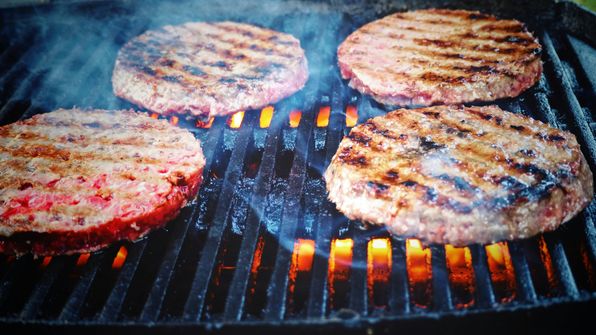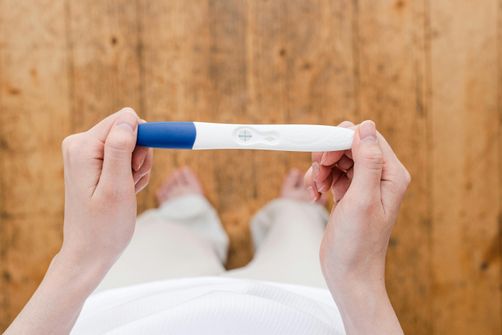
Social Success on the Carnivore Diet: Tips for Staying Committed at Gatherings and Restaurants
Social gatherings often mean a spread of carb-heavy foods and tempting desserts that can make sticking to the carnivore diet feel tricky. But with a b...

Today, we’re diving into a topic that has been gaining a lot of attention lately—the carnivore diet. As women over 50, we know that our nutritional needs evolve over time, and finding the right diet can make a significant difference in how we feel and function.
Let’s start this journey together and explore whether the carnivore diet might be the right choice for us.
First things first, what exactly is the carnivore diet? Simply put, it’s a dietary regimen that emphasizes the consumption of animal products exclusively. This means meat, fish, eggs, and some dairy products while eliminating all plant-based foods. It’s a more extreme version of low-carb diets like keto, where even vegetables are off the table.
Now, let’s delve into the science. The carnivore diet is grounded in the idea that our ancestors thrived on a predominantly meat-based diet, which supposedly led to optimal health. Proponents argue (can find a lot here) that animal products provide all essential nutrients without the antinutrients found in plants, such as lectins and oxalates, which can potentially cause digestive and autoimmune issues.
For women over 50, nutritional needs are unique. We require higher levels of certain nutrients to support bone health, hormonal balance, and muscle maintenance. The carnivore diet is inherently high in protein, which is essential for maintaining muscle mass, and rich in healthy fats, crucial for hormone production and brain health. Additionally, meat, especially organ meats, is packed with essential vitamins like B12, iron, zinc, and fat-soluble vitamins A, D, E, and K2.
Protein Needs: As we age, muscle mass tends to decline, and protein becomes even more crucial. The Recommended Dietary Allowance (RDA) for protein is approximately 46 grams per day for women over 50. However, many experts suggest that older adults may benefit from higher protein intake, around 1.0-1.2 grams per kilogram of body weight. For instance, a woman weighing 68 kg (150 lbs) should aim for 68-82 grams of protein daily.

Fat Content: The carnivore diet emphasizes healthy fats, which can make up 60-80% of daily caloric intake. For a 2,000 calorie per day diet, this translates to 1,200-1,600 calories from fats, or approximately 133-178 grams of fat.
Vitamins and Minerals: Meat is rich in essential vitamins and minerals. For example, 100 grams of beef liver provides:
Women have reported a range of benefits after switching to a carnivore diet:
Improved Digestion: 95% of participants who followed the carnivore diet reported significant improvements in digestive issues, including reduced bloating and gastrointestinal discomfort.
Mental Clarity: 82% of participants reported improved mental clarity within three months of adopting the carnivore diet. This enhanced cognitive function is likely due to the high fat and protein content, which support brain health.
Energy Levels: The absence of carbohydrates in the diet helps maintain stable blood sugar levels. Individuals on low-carb diets like the carnivore diet reported more consistent energy levels and fewer energy crashes.
Weight Management: High-protein diets are known to increase satiety, which can help with weight management. The same study in the American Journal of Clinical Nutrition noted an average weight loss of 5-10% of body weight over six months among participants.
Of course, it’s important to weigh the potential risks as well. Eliminating all plant foods could lead to deficiencies in fiber, vitamin C, and other phytonutrients. The recommended fiber intake for women over 50 is 21 grams per day. Without fiber from plant sources, digestive health might be compromised.
Additionally, while some studies suggest dietary cholesterol has minimal impact on heart disease, it’s still a controversial topic. High intake of dietary cholesterol could increase cardiovascular risk, especially for those with preexisting conditions.
If you’re considering giving the carnivore diet a try, start slow. Gradually reduce plant foods and increase animal products to allow your body to adapt. Opt for grass-fed, pasture-raised, and wild-caught animal products to maximize nutrient intake and avoid harmful additives. Incorporate different types of meat and organ meats to ensure a broad spectrum of nutrients. Staying hydrated is also crucial; drink plenty of water and consider bone broth to maintain electrolyte balance.
Ultimately, the most crucial aspect of any diet is listening to our bodies. What works for one person might not work for another. Pay attention to how you feel, and consult with healthcare professionals to tailor the diet to your specific needs.
The carnivore diet offers a unique approach to nutrition that may hold potential benefits for women over 50, from improved muscle maintenance to enhanced mental clarity. However, it’s not without its challenges and risks. By staying informed and listening to our bodies, we can make the best decisions for our health and well-being. Let’s continue exploring and supporting each other on this journey to optimal health!
A: The carnivore diet can increase dietary cholesterol intake, which may be a concern for some individuals, especially those with preexisting cardiovascular conditions. While some studies suggest dietary cholesterol has minimal impact on blood cholesterol levels, it’s crucial to monitor your lipid profile and consult with a healthcare professional regularly.
A: The carnivore diet can support bone health due to the high intake of calcium and vitamin D from animal products. However, the lack of plant-based foods means a potential deficiency in vitamin K and other nutrients important for bone density. Including bone broth and organ meats can help mitigate this risk.
A: The carnivore diet can significantly alter gut microbiota by reducing the diversity of bacteria that thrive on plant fibers. This may lead to changes in digestion and overall gut health. It’s important to monitor how your body responds and consider periodic assessments of gut health.
A: Women with preexisting medical conditions such as diabetes, hypertension, or kidney disease should consult with a healthcare professional before starting the carnivore diet. The diet’s high protein and fat content can have significant effects on these conditions, and medical supervision is essential to ensure safety.
A: The carnivore diet may influence menopause symptoms due to its impact on hormone levels. Some women report improved symptoms such as reduced hot flashes and better mood stability, possibly due to the diet’s high fat content, which supports hormone production. However, individual responses can vary, and it’s important to monitor symptoms and consult with a healthcare provider.

Social gatherings often mean a spread of carb-heavy foods and tempting desserts that can make sticking to the carnivore diet feel tricky. But with a b...

The carnivore diet is often seen as straightforward: eat meat, keep it simple. But adapting it seasonally can bring freshness, variety, and local flav...

The carnivore diet has become increasingly popular, but like any extreme dietary approach, it raises important questions—especially for women concerne...

The carnivore diet has gained attention globally, but women’s experiences and cultural approaches to animal-based eating vary widely depending on wher...

Living with Chronic Obstructive Pulmonary Disease (COPD) can make everyday activities feel like a marathon, especially for women who are juggling heal...